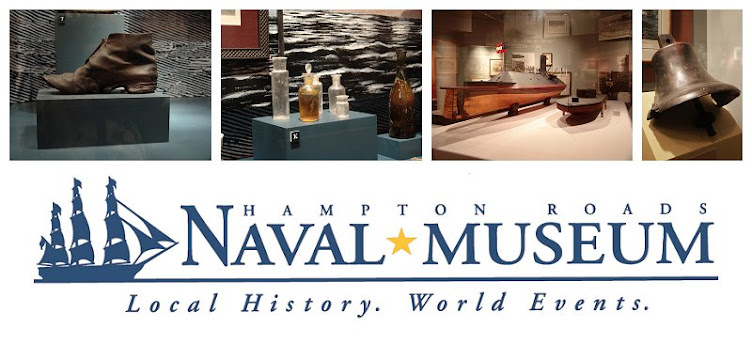Monday, November 19, 2012
USS LST-342 Ship Model
Shown here is a ship model of USS LST-342. Currently on display in our World War II gallery, the model was constructed for the museum by Howard E. Pierson in 1979.
LST-342 was one of fifty LST-1-class landing ships, tanks built by Norfolk Naval Shipyard during World War II. Displacing 1,600 tons (empty), the Navy's amphibious forces used these ships to carry men and supplies into contested beachheads. Capable of carrying about 3,000 tons of cargo, these ships were "blue-water"-capable. That means they were able to sail independently and not have to be carried into combat by a larger cargo ship. The Navy deemed these ships so important that they ordered Norfolk Naval Shipyard to stop construction on large surface warships such the battleship Kentucky (BB-66) and get to work on building LSTs.
The Navy commissioned LST-342 in Norfolk on December 31, 1942, just six weeks after launching with a ship's company trained entirely at Hampton Roads naval installations. She immediately set sail from Hampton Roads for the Pacific Theater, specifically Guadalcanal. Loaded up with combat supplies, she then proceed to Rendova, New Georgia, in the Solomon Islands. At the time, American ground and naval forces had begun Operation Toenails and were engaged in heavy fighting on and around New Georgia. Unfortunately for LST-342, the Japaneses submarine RO-106 spotted the landing ship at 1:30 a.m. on July 18, 1943, and fired several torpedoes at her.
The torpedoes found their mark and struck LST-342 near the berthing section. Several dozen American causalities resulted from this action. Notable losses included the entire mess division and its five African American stewards and cooks, and accomplished Navy combat artist McCelland Barclay. During the war, Barclay designed recruitment posters for the Navy and several types of camouflage patterns. Read more about him at our command's website.
The wrecked ship was towed to Florida Island for salvage. The wreck of the ship can still be seen today and has become a minor tourist attraction. As a postscript, it is worth noting that the legendary sub killer USS England (DE-635) sank RO-106 a year later.
Thanks to Paulo Soukup via navsource.org for the images of LST-342's wreck.
Subscribe to:
Post Comments (Atom)




No comments:
Post a Comment